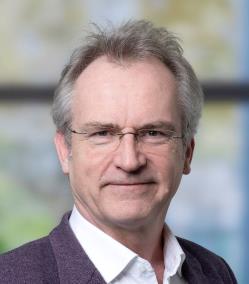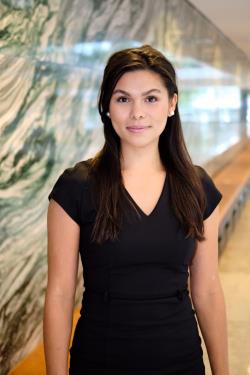Shaping an inclusive global action to anticipate quantum technologies
Quantum Delta Netherlands
Session 212
Aim:
A 45 minutes roundtable exploration on how to make global actions towards the governance of the ethical, societal and policy impact of quantum technologies effective and inclusive to all states and communities.
Explanation:
Currently there are different initiatives to global actions for anticipating the ethical, societal and policy impact of future quantum technologies. For instance, in the previous workshop “Pioneering Responsible Global Governance for Quantum Technologies” at this WSIS+20 event, the European University Institute presents a proposal to UNESCO to support analysing the risks and opportunities of quantum technologies, and arriving at a responsible global governance. And the Geneva Science and Diplomacy Anticipator (GESDA) initiated the Open Quantum Institute for global use of quantum computing for realising the UN Sustainable Development Goals.
Quantum Delta NL, the Dutch national programme for developing quantum technologies, charted the global impact of quantum technologies [quantum-computing-and-the-global-south] and studies with UNESCO possibilities for global actions to anticipate quantum technologies [quantum-technologies-and-their-global-impact]. With this roundtable we take a next step of exploring how to make such global actions effective and inclusive to states and communities globally. Quantum technologies may undermine cyber security, boost research in pharmacy, and create global positioning capabilities. Quantum Delta NL wants to partner with states globally to make the governance of quantum technologies inclusive to all.
The roundtable:
After a brief introduction to global actions towards anticipating quantum technologies participants explore three questions on the inclusivity of these actions to states that do not yet have concerted efforts within quantum technologies: what will convince these states to join actions; what enables them to participate, and what do they aim to achieve with the actions?

Pieter Vermaas is philosopher of quantum technology and design at TU Delft. He leads ethics research for the Dutch Quantum Delta NL programme for the development of quantum technologies and heads the Quantum Lab at the Faculty of Technology, Policy and Management of TU Delft. His research concerns the societal and moral impact of quantum computing, quantum internet and quantum sensing, and the use of design tools for enabling non-expert stakeholders to co-shape these technologies

I am part of the international team at the Quantum Delta NL foundation, focusing on fostering bilateral relationships between the Netherlands and key nations such as the UK, USA, Canada, and Japan. My interdisciplinary background lies in social psychology and public administration with a specialization in international and European governance. My interest in international governance led me to lecture on United Nations and Multilateral Diplomacy at Radboud University in Nijmegen, the Netherlands. Born and raised in Delft, in proximity to the Delft University of Technology campus, I have always been immersed in a community with a strong technical background. Despite my roots in social science and public administration, I have a profound fascination for technology, particularly emerging ones. My passion lies in bridging the realms of technology, particularly quantum technology, and international governance, translating these worlds towards each other.

Ms Hood holds a Master’s degree in management from EMLyon business school and a Master’s degree in urban planning and development from University Paris 1 Panthéon-Sorbonne. She began her career in strategy consulting, where she advised local, regional and national governments on economic and innovation policy. She has a specific interest in assessing the methods and mechanisms that policymakers use to accelerate economic development in their regions, such as innovation clusters, incubators, accelerators and technology transfer platforms. In 2012, Ms Hood joined the Swiss Department of Foreign Affairs at the Embassy of Switzerland, first in Paris and then as the head of business section of the Embassy of Switzerland in the UK. In this role she supported business and R&D ventures, working with start-ups on AI and data-driven technology projects, with applications in healthcare, life science and performance engineering. In August 2020 she joined GESDA, where she oversees the do-tank activities of the Foundation. In this capacity, she recently led the incubation of the Open Quantum Institute, born at GESDA and hosted since March 2025 at CERN, with the support of UBS. This novel multilateral science diplomacy initiative aims at leveraging the power of quantum computing for the benefit of all.